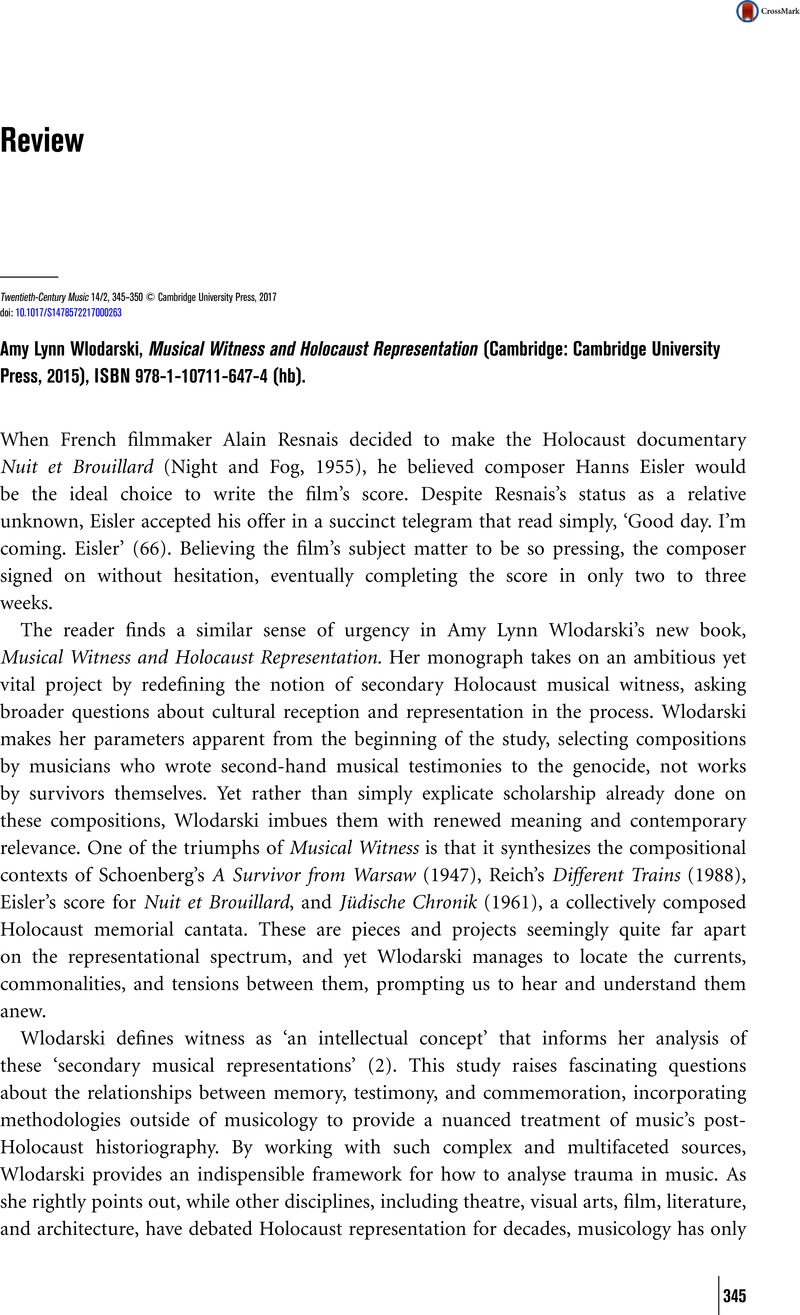No CrossRef data available.
Published online by Cambridge University Press: 25 July 2017

1 For recent examples of work in musicology concerning post-war witness and the Holocaust, see Cizmic, Maria, Performing Pain: Music and Trauma in Eastern Europe (Oxford: Oxford University Press, 2012)Google Scholar; and Calico, Joy, Arnold Schoenberg's ‘A Survivor from Warsaw’ in Postwar Europe (Berkeley: University of California Press, 2014)Google Scholar.
2 Adorno, Theodor W., ‘On the Contemporary Relationship of Philosophy and Music’, in Essays on Music, ed. Leppert, Richard (Berkeley: University of California Press, 2002), 49 Google Scholar, quoted in Wlodarski, Musical Witness, 40; Adorno, , ‘Commitment’, in Can One Live after Auschwitz? A Philosophical Reader, ed. Tiedemann, Rolf, trans. Livingstone, Rodney and Others (Stanford: Stanford University Press, 2003), 252 Google Scholar, quoted in Wlodarski, Musical Witness, 52.
3 Monaco, James, Alain Resnais: The Role of Imagination (London: Secker & Warburg, 1978), 20 Google Scholar, quoted in Wlodarski, Musical Witness, 58.
4 Berthold Hoeckner, ‘The Morality of Audiovisual Memory’, paper given at the American Musicological Society, Houston, TX, 2003, quoted in Wlodarski, Musical Witness, 60.
5 Calico, Joy, ‘ Jüdische Chronik, The Third Space of Commemoration between East and West Germany’, The Musical Quarterly 88/1 (2005), 97 CrossRefGoogle Scholar, quoted in Wlodarski, Musical Witness, 92.